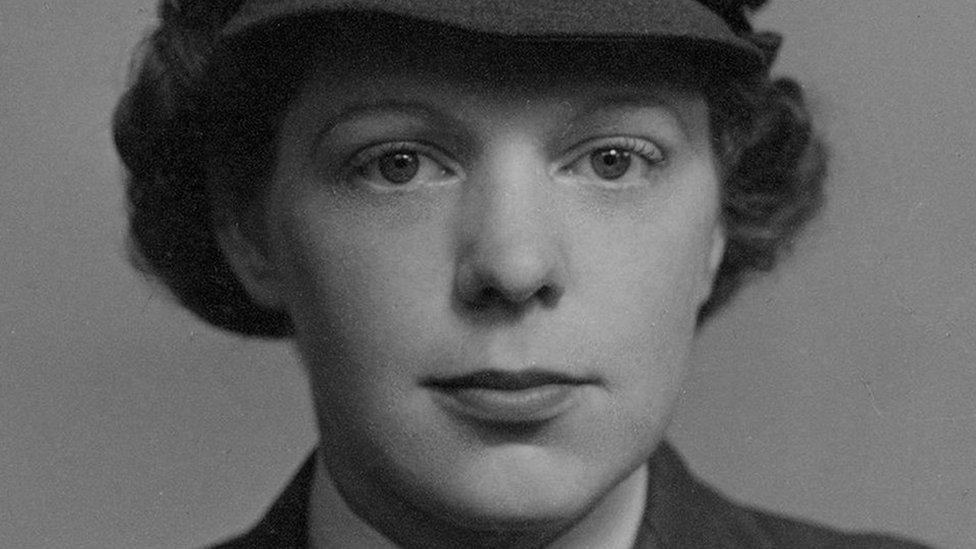The woman who left Britain to parachute into Nazi-occupied Poland
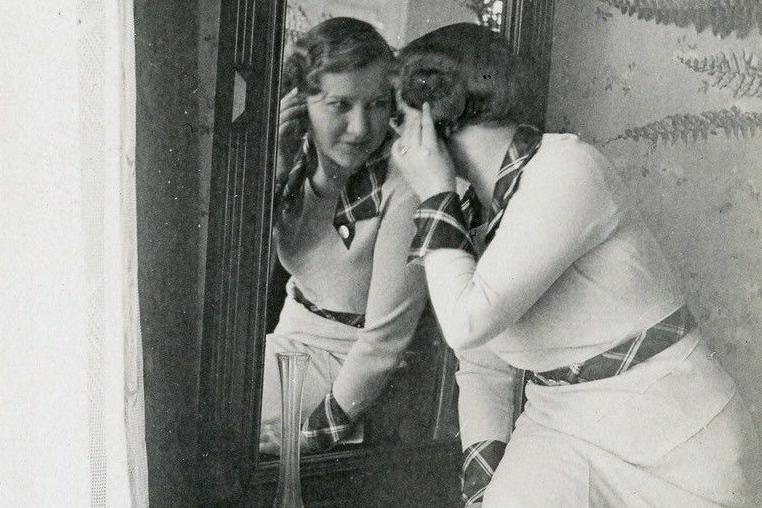
Elżbieta Zawacka crossed international borders more than 100 times as she smuggled military intelligence to the Allies
- Published
On a crisp September night in 1943, a woman boarded a warplane ready to return to Poland to fight the Nazis, a parachute strapped to her back and a blue dress beneath her flight suit.
Elżbieta Zawacka had arrived in the UK in May following a perilous journey lasting several months across 1,000 miles of occupied territory.
Branded "the captain in a skirt" and "a militant female dictator" as she confronted those in charge in London, her efforts would transform the status of women in the Polish Home Army, helping to save thousands of lives.
On her return to her homeland, and having played a major role in the largest organised insurrection against Germany in World War Two, her "reward" was to be captured, tortured and jailed by her own government.
So who was the woman who went by the name of Zo, and what inspired her to acts of such defiance and bravery?
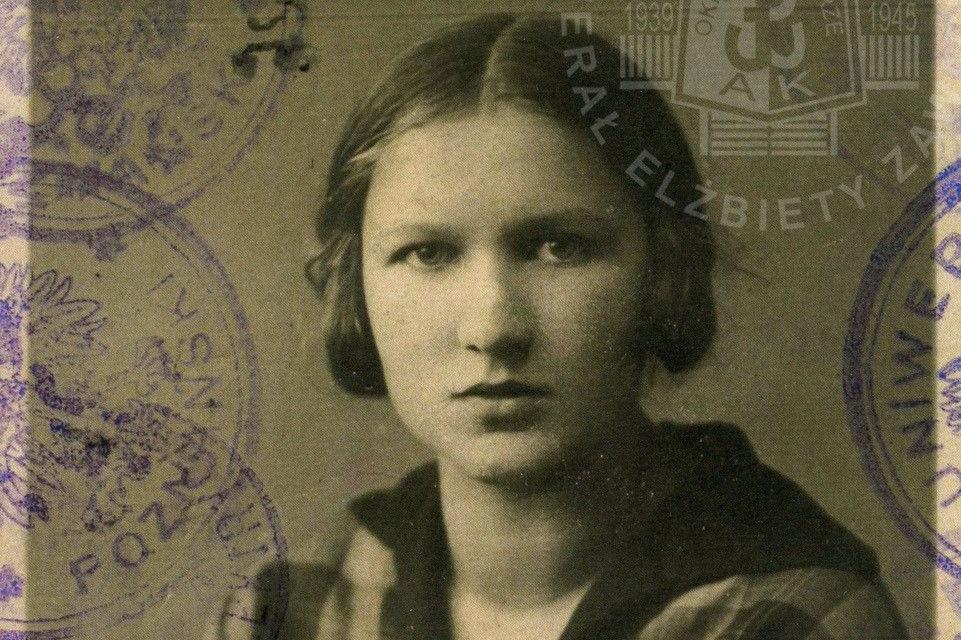
Zo, as seen on her student pass, graduated from Poznań University with a higher degree in mathematics
Elżbieta Zawacka was born in 1909 in the city of Toruń, a part of Poland which had been under the control of Prussia, then later Germany, for nearly a century.
At the end of World War One, the area was reclaimed by Poland. When both Germany and the Soviet Union invaded the country in September 1939, Zawacka joined the underground resistance, taking the code name Zo and building an intelligence network made up nearly entirely of women that covered the size of Wales.
Her blonde hair and perfect German made her an ideal candidate to act as its main courier, smuggling microfilms packed with military information hidden in objects such as toothpaste tins, keys and cigarette lighters - often into Berlin where the illicit cargo would be handed to another agent to be passed on to the West.
"It's really ironic," says Clare Mulley, historian and author of a new book, Agent Zo. "She has to bring information from Nazi German-occupied Poland right into the heart of the Third Reich as that's the fastest way they can get it to London."
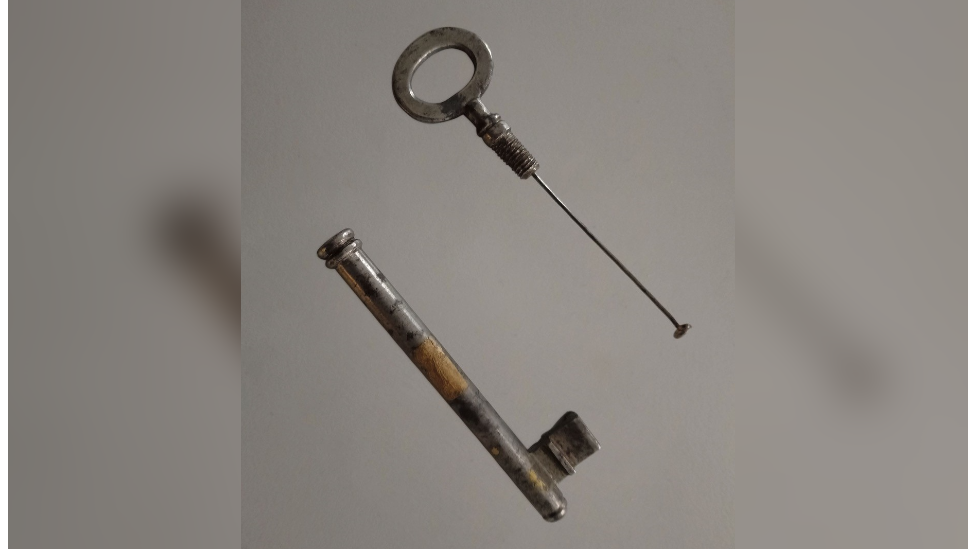
Zo used objects like this hollow key to smuggle microfilm across borders
In May 1942 her network was infiltrated by the Nazis and soon Gestapo officers were in hot pursuit. At one point, Mulley says, Zo leapt from the door of a moving train to evade an officer who had joined her in the carriage.
With her intelligence network compromised and her name and face known, she was handed a new mission.
Assigned by the commander of Poland's Home Army, Gen Stefan Rowecki, as his personal representative, Zo was instructed to cross occupied Europe to pass orders to the country's government-in-exile, which was based in London.
Departing in February 1943, the journey first took her back to Berlin and then on to Paris, where she soon feared the worst when her fake identity papers were confiscated by a hotel clerk.
"She knows they think there's something up, but when they return them to her the next morning, they say, 'What wonderful papers, we kept them to compare against a possible forgery,'" says Mulley.
Needing to reach Gibraltar to catch a troopship to Britain, Zo next hid herself inside a secretly adapted tender (water-tank carriage) on a train used by French politician and Nazi collaborator Pierre Laval.
This took her to the Pyrenees, almost drowning her in the process, from where she trekked across the mountain range into Spain.
Again Zo was nearly captured. At one point, Mulley says, she was thrown out of a hotel window by her guide to shake off two German officers who had picked up her resistance companions. She was later shot at as she crossed the frozen mountain passes.
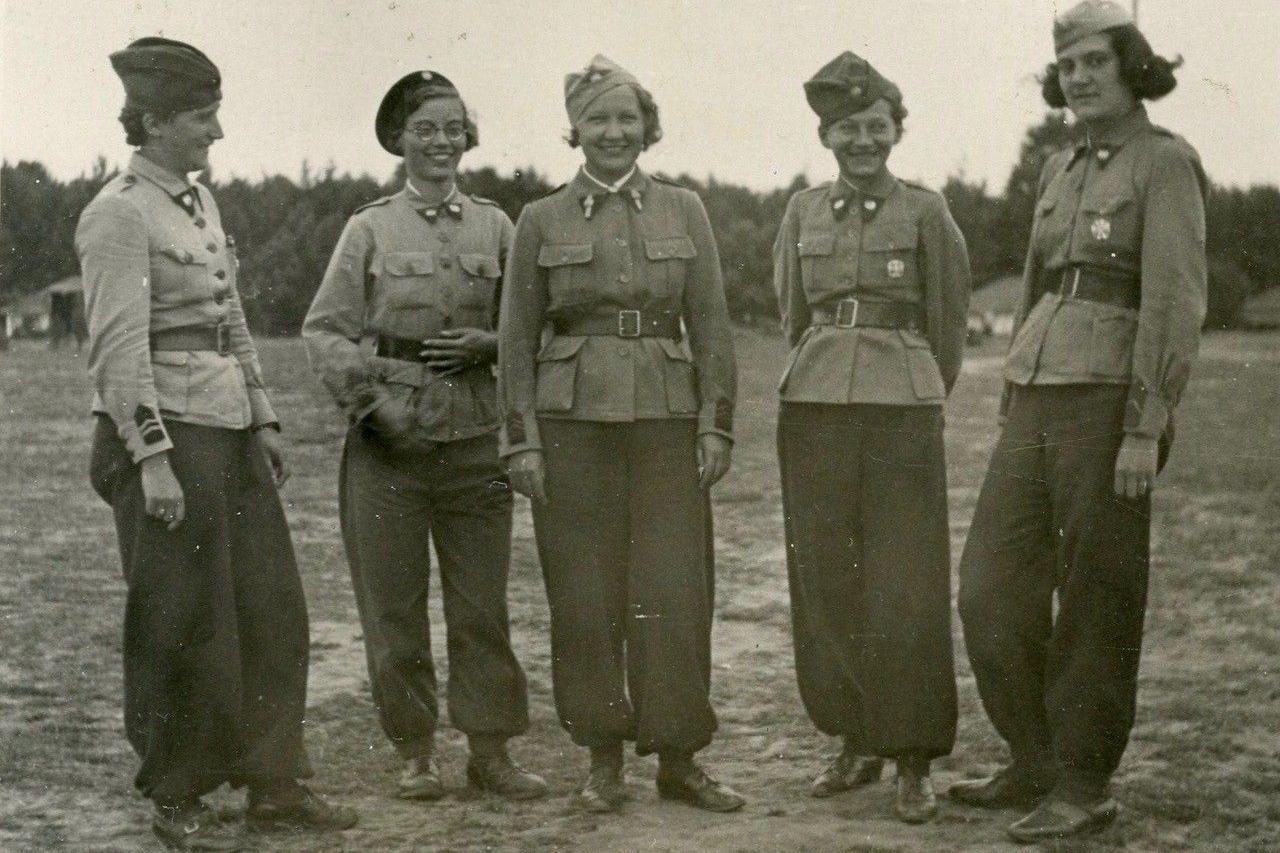
Zawacka (centre) took the nom-de-guerre Zo after being sworn into the Polish resistance
Zo finally boarded a ship to Liverpool where she was immediately picked up by MI6 and taken to its south London base, amid fears she was an enemy agent.
Papers held by the National Archives show this questioning was seemingly done in the most British way possible.
"One of the very first memos is from her interrogating officer and he just says rather pathetically: ‘She was rather reluctant to pass information on to me.'
"I love that. It’s very polite," laughs Mulley.
Zo soon moved into a hotel in Piccadilly and joined up with the Polish authorities, who were bemused by the arrival of someone who had gained legendary status - but was also a woman.
"They don't know whether to salute her or to bow and kiss her hand," Mulley says.
For Polish war hero Kazimierz Bilski, there was one thing for it. He declared that "out of a bachelor's long-standing habit, I tried my best to draw her into some semblance of flirtation".
"He takes her across St James's Park and it's spring and there's bluebells and birdsong and American GIs making out with the English girls, and he pulls from his pocket these silk stockings like an amorous magician and flirts with her," explains Mulley.
"Zo's absolutely appalled because the only women wearing silk stockings in Poland are the wives of Gestapo officers. She could be killed if she was caught with them.
"It just shows to her how little he understands what the situation is like behind enemy lines."
Churchill's favourite spy: Aristocrat who risked her life in WW2
- Published7 January 2024
The secret life of a spy heroine revealed
- Published14 October 2023
The heiress who saved countless lives
- Published18 September 2021
As a courier she had witnessed first hand the risks members of the resistance took when smuggling intelligence across Europe and, in her usual forthright fashion, Zo set out to inform the Polish leaders of their ignorance.
"I started to point out their mistakes... I'm quite direct in these matters," she later recorded.
"The London end isn't really working very well so she sorts that out," Mulley explains.
The matter of greatest importance to Zo was a mission given to her by Gen Rowecki, to secure from Poland's government-in-exile the same legal military rights for women in the Home Army as male soldiers had.
"He's not a feminist or equal opportunities employer or anything like that. He's doing it because he knows it's of real importance to the Home Army’s effort," Mulley says.
Poland's Home Army was the largest resistance force in occupied Europe but with many men stuck overseas, there was a need to recruit as many women as possible and for them to have military ranks.
"The women can't discipline soldiers and they can't give orders; they can only ask politely, and that's not the way an army runs," says Mulley.
The government-in-exile "just can't believe that women should be given military legal status", Mulley explains, and Zo was branded "an insane feminist".
Yet she drafted a legal decree on women's military status that became law and which would prove lifesaving the following year.
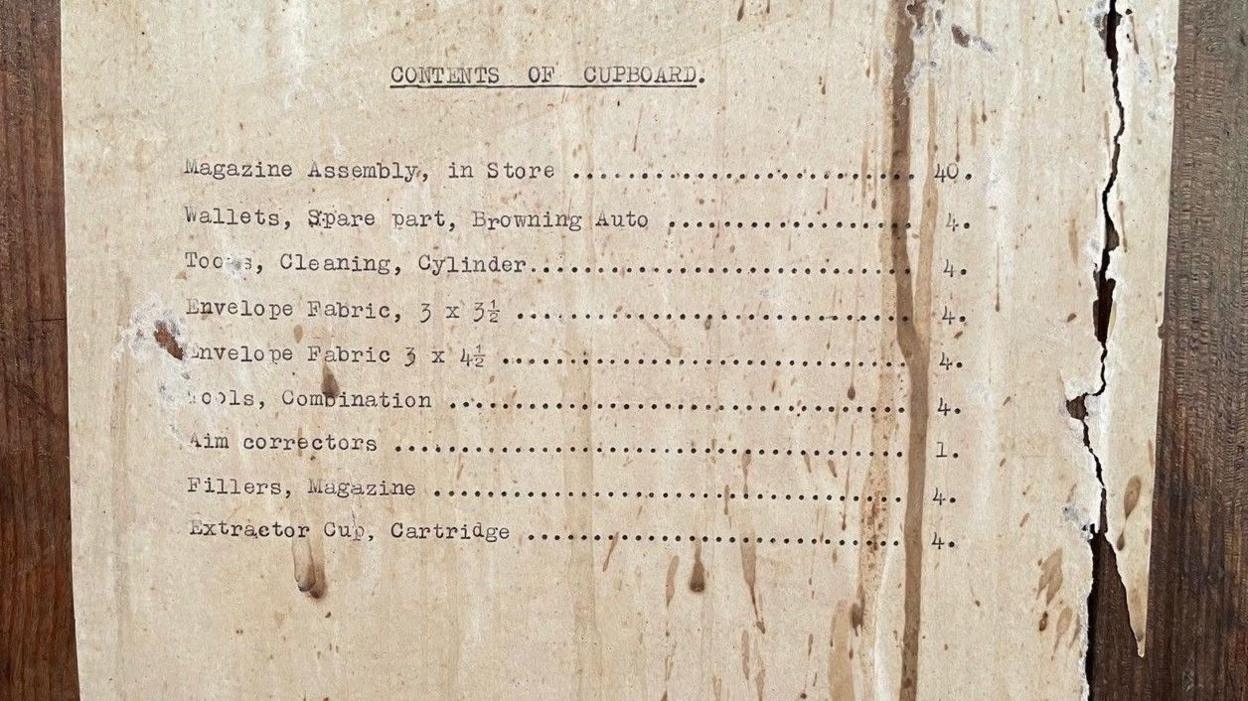
Weapons storage labels like this one can still be found in laundry cupboards at Audley End House, an English stately home used by the Polish branch of the Special Operations Executive
Zo was determined to return to the fight in her homeland, and joining up with Poland's elite paratrooper unit in Britain - known as the Cichociemni or Silent Unseen - made this possible.
During the war, several of the UK's stately homes were requisitioned as training camps and Zo was sent to Audley End House, in Essex, to brief the troops about how to remain unnoticed in occupied Poland.
It was also where she began her own training, and on 9 September 1943 she became one of only 316 Cichociemni out of some 2,500 recruits to be flown home.
"I quite like the line she's the only person to parachute back from Britain to Nazi German-occupied Poland in a dress because she's the only woman to do it," Mulley says.
Back on home soil, Zo's underground work continued but it would be her influence during the Warsaw Uprising - a rebellion launched against the Nazis on 1 August 1944 - that proved most significant.
With the Polish fighters finally surrendering after 63 days of brutal combat, which left some 200,000 people dead, Zo's work to gain military status for female soldiers spared countless women the fate of being executed or sent to concentration camps.
"Previously when the Nazi Germans captured women who are involved in resistance... they considered them to be basically bandits or commandos and Hitler has got this Commando Order - after a raid on the Channel Islands, he said that anyone who is found fighting not in uniform will be shot without trial," says Mulley.
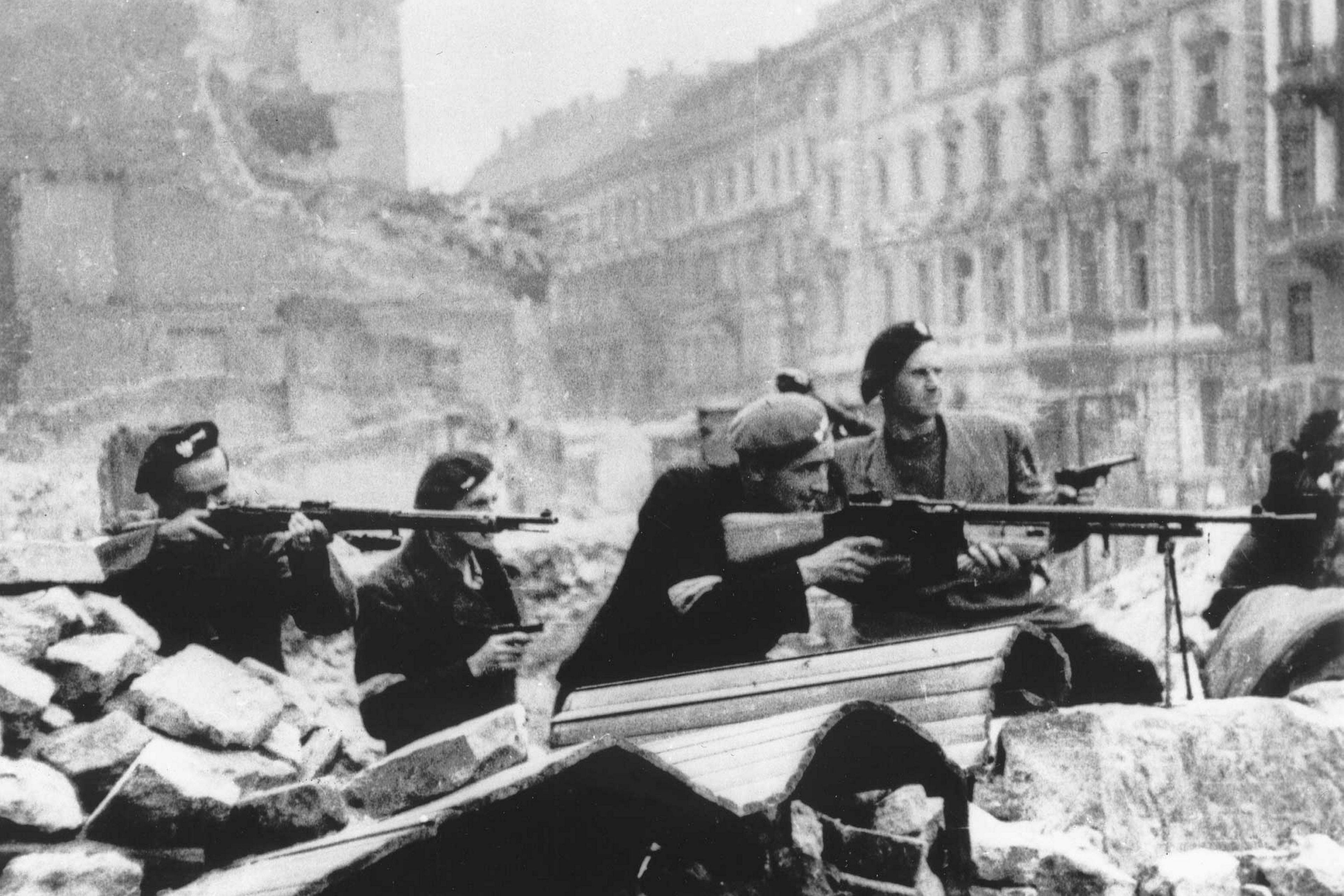
The Warsaw Uprising was the largest organised act of defiance against Nazi Germany during World War Two
Recent estimates by Poland's Warsaw Uprising Museum suggest up to 12,000 women took part.
"They have protections under the Geneva Convention, which means it's the only time in the war that Nazi Germany sets up prisoner-of-war camps for women," Mulley says.
Zo, though, managed to sneak away from her captors to continue her resistance work.
Yet along with many other resistance fighters who were considered a threat by the Soviet-backed communist authorities who took power in Poland as World War Two ended, Zo was arrested. She was tortured and sentenced to 10 years in jail.
Released after six years, she would remain closely watched, her wartime heroics kept hidden by those in charge.
In secret, Zo managed to collect the resistance stories of women who had served in the war. These were eventually used to create a museum in her hometown of Toruń.
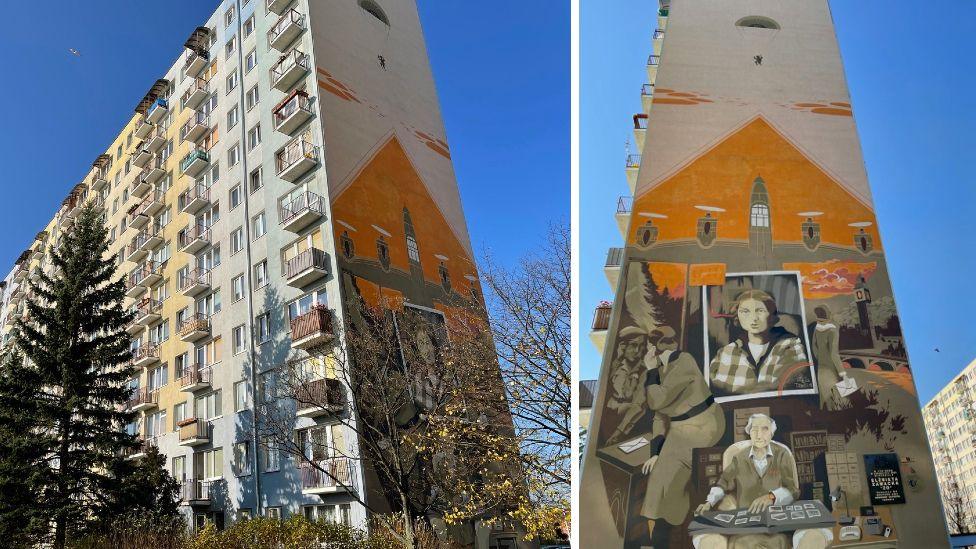
A mural depicting Zawacka has been painted on the side of the communist-era apartment block where she lived in Toruń
Zo, who died aged 99 in January 2009, became only the second woman to attain the status of brigadier general in the Polish Army, a rank conferred upon her in the years after communist government fell.
So what drove this woman who was so determined to see her causes to the end?
"One of the things I like about her is that when she talks after the war, she speaks about recruiting many of her friends and she sometimes says, ‘They were so grateful to me, they were so delighted that I enabled them the chance to serve their nation,'" Mulley says.
"And then you look at some of the paperwork of her friends and they said: ‘Zo came and she terrified me. I couldn't do anything else. I had to do it.'
"They've got a very different perspective on it but she sort of blithely assumes that everyone shares her very binary world vision - they're bad, we've got to free Poland.
"That's it. That's what's driving her."
Listen to the best of BBC Radio London on Sounds and follow BBC London on Facebook, external, X, external and Instagram, external. Send your story ideas to hello.bbclondon@bbc.co.uk, external
Related topics
More stories from London's past
- Published28 April 2024
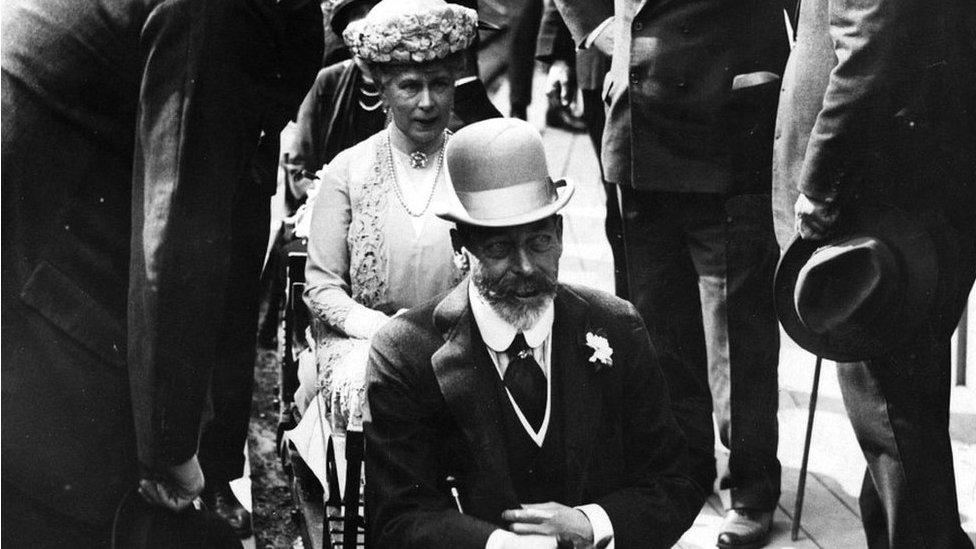
- Published15 April 2022

- Published28 December 2021
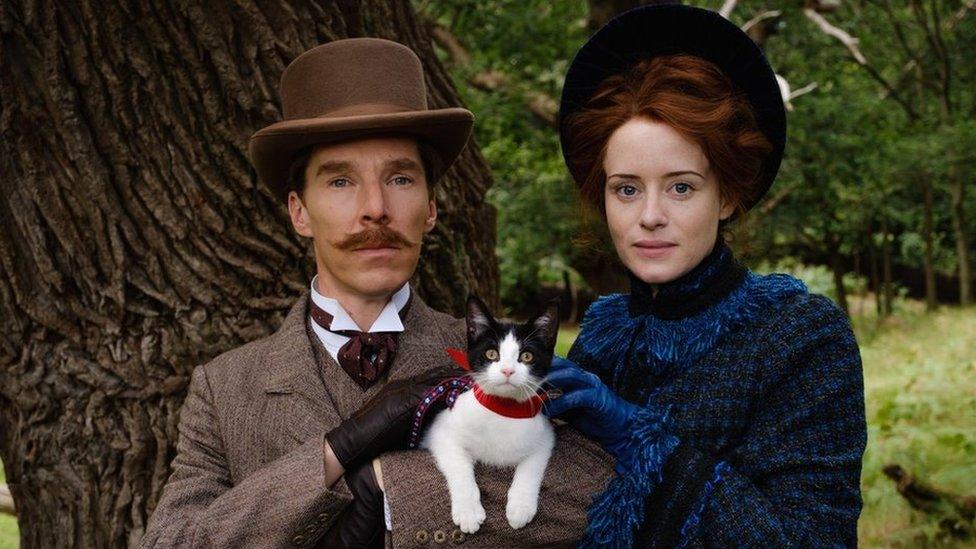
- Published31 July 2022
